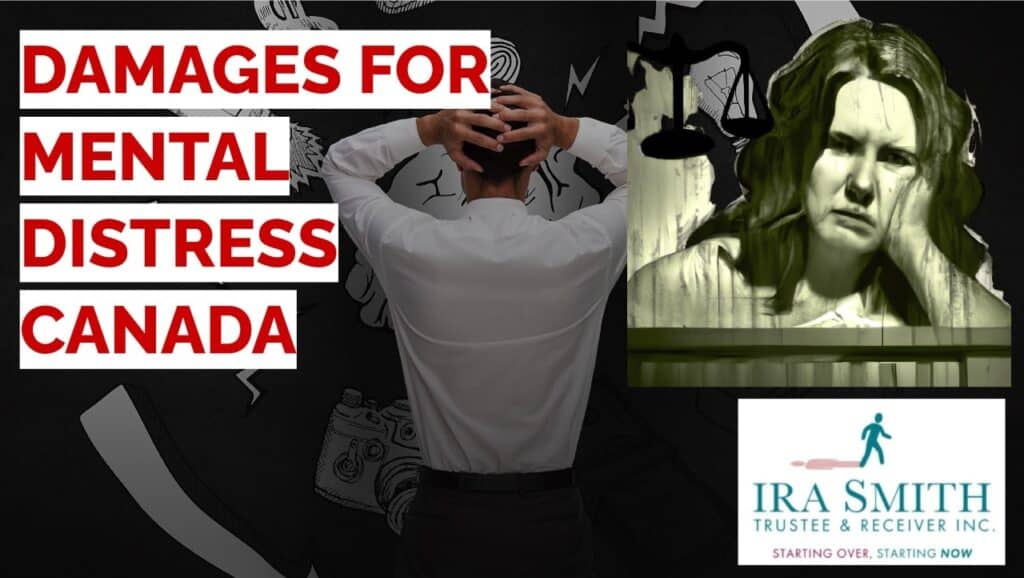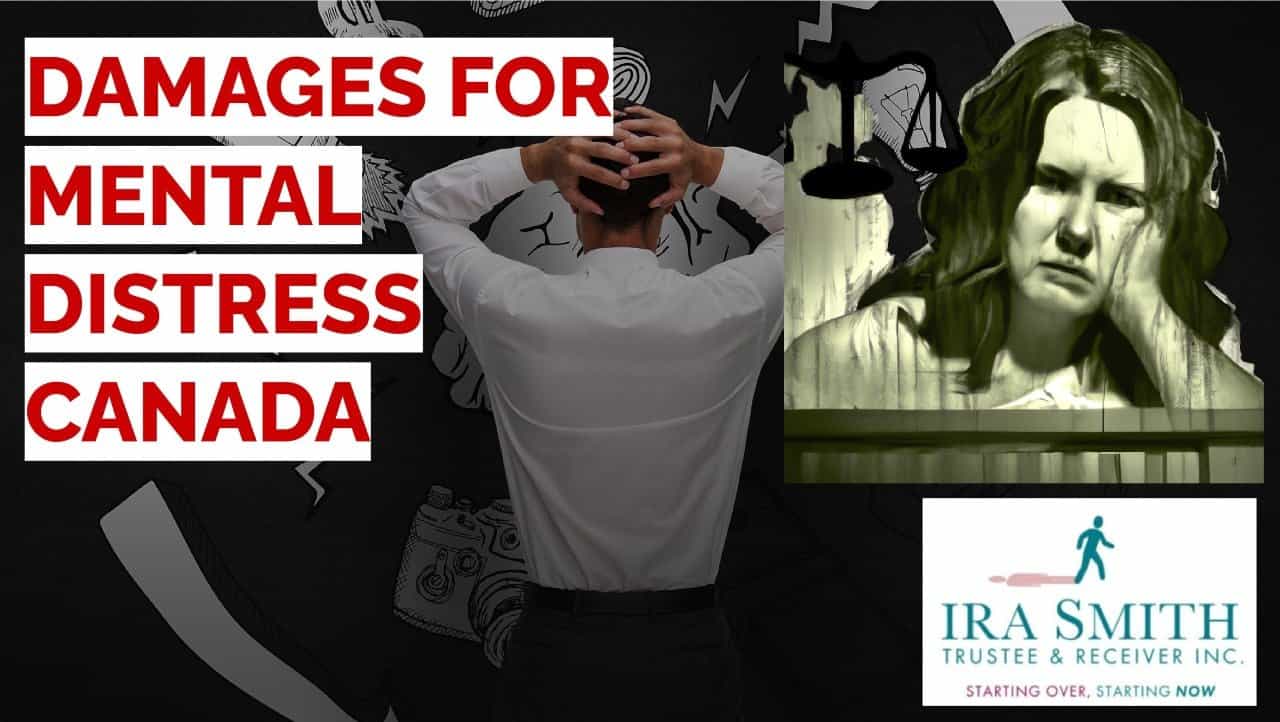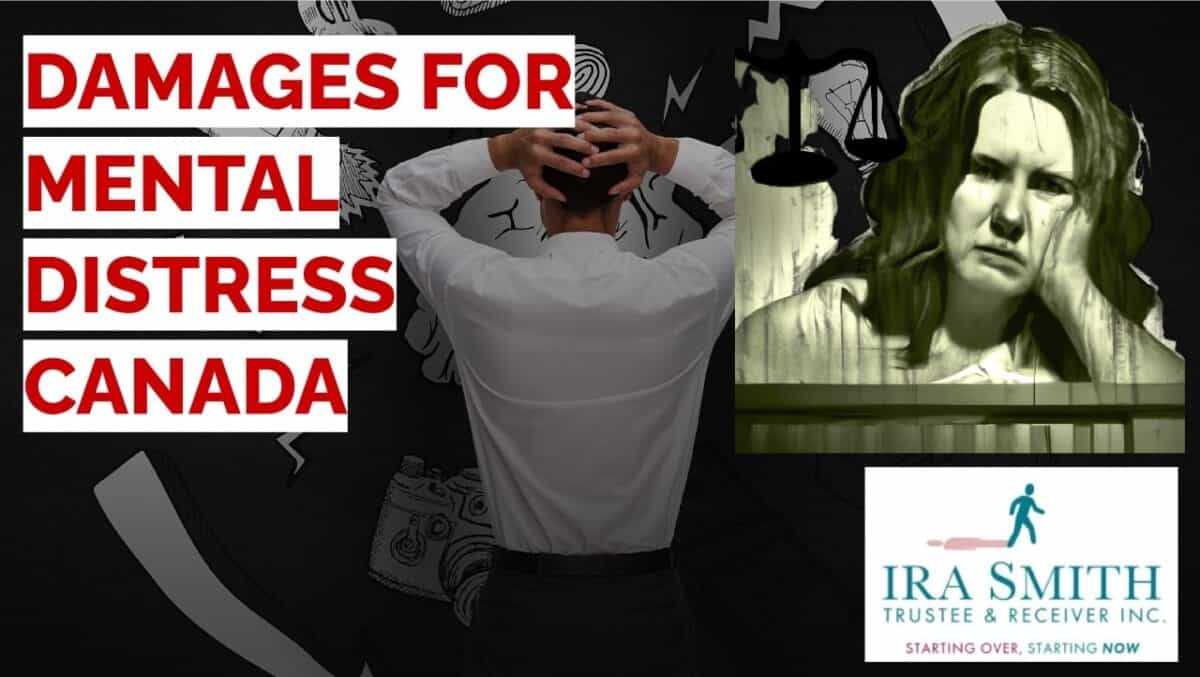Damages for mental distress in Canada: What are psychological injuries?
In Canada, there are a number of different options available to those who have suffered from psychological injuries. These include a civil lawsuit for damages for mental distress, which can help to cover the costs of treatment and other related expenses.
There are a variety of factors that will be considered when determining the available damages. These include the severity of the injuries, the impact on the victim’s life, and if this type of bodily harm was inflicted on purpose.
Earlier this year, a Saskatchewan court ordered a man to pay $160,000 in damages to a victim of revenge pornography abusive conduct. This is a significant decision that could have far-reaching implications for other victims of this heinous crime. The man’s lawyer said that his client will never be able to afford to pay off this claim and may have to file for personal bankruptcy in order to get released from this debt. This really piqued my interest.
In this Brandon’s Blog, I describe the decision of damages for mental distress in Canada awarded against the man, Daylan Heidel.
Damages for mental distress in Canada: Can you sue for emotional damage or mental suffering in Canada?
Mental impairments or mental distress describes the suffering caused by an accident, injury, or any kind of distressing experience. People who have experienced a traumatic event, including those who may have witnessed the event and also family members of the sufferers, can file a civil legal action claiming mental distress or psychological suffering. It affects all of these people’s quality of life and produces catastrophic injuries to a person’s psyche.
Usually, in our society, psychological distress, mental health issues or mental suffering are typically minimized or even considered inconsequential health conditions contrasted to physical harm. The truth is that medical evidence has shown that psychological injuries like emotional distress are just as real an injury as physical ones. Unlike a physical injury, it can last for a long period of time and could lead to long-term emotional damage. This is often ignored. The victim could have various symptoms from the traumatic experience. These include post-traumatic stress disorder or other symptoms, including sleep disorders, huge mood swings and loss of dignity long after the stressful event.
Nevertheless, you may be able to start a lawsuit against the party that is the source of your emotional distress. You might also be qualified for payment according to your legal rights. If you have the ability to collect on the award, that cash can go for spending on the treatment that you need.
Canadian courts are showing that they are willing to give awards for damages for mental distress in Canada.

Damages for mental distress in Canada: Mental distress damages awarded in the Saskatchewan court case
Daylan Heidel was scorned by his ex-lover. He thought that he would get even by uploading nude pics and videos of her to various internet sites. He didn’t just post her intimate images without her consent, but also published her name and personal details. The Judge awarded her $160,000 in general and aggravated damages for mental distress in Canada.
Heidel had already served some jail time a while back. He was convicted of distributing images of six women without their consent. One of them got a lawyer and sued Heidel for violating her privacy. A video of her has 1.5 million views. So every time somebody accesses that material, it’s another violation of her. She was able to sue for those continuing violations.
Since the federal government criminalized the non-consensual distribution of nude pics and videos in 2015, several provinces, including Saskatchewan, have amended privacy laws to make it easier for victims to take civil action and sue perpetrators for compensation. This is a form of sexual abuse. Although there have been only a few cases so far, this shows that the law is working and that victims now have a way to stand up for their rights, which can have a huge psychological benefit for the aggrieved party.
A Court of King’s Bench for Saskatchewan Judge has found that Heidel’s actions were malicious, flagrant, and intentionally inflicted mental distress. This is a significant ruling, as civil suits for an award for damages for mental distress in Canada are still not common.
This is the largest sum awarded thus far for damages for mental distress in Canada arising from the distribution of intimate photos without the person’s consent. This decision is good news for supporters of victims of sexual violence. In our culture, we tend to put a price on things, and so this decision values the lives of sexual assault victims.
The defence lawyer for Heidel stated that his client may appeal the decision or file for bankruptcy, even though he accepts responsibility for his actions and regrets them deeply. The lawyers went on to say that this case should serve as a warning that sharing intimate images without consent can have severe consequences.
Heidel’s defence lawyer’s lack of appreciation for the nuances of Canadian bankruptcy law is evident. It is obvious that he is not an experienced lawyer for bankruptcy and insolvency matters.
Damages for mental distress in Canada and bankruptcy
The defence lawyer for Heidel believes that his client can file for bankruptcy and avoid liability for the court award. However, given the wording the Judge used, this is incorrect. As stated in numerous previous blogs on personal bankruptcy, it is the discharge from bankruptcy that eliminates the person’s debts.
However, according to section 178(1) of the Bankruptcy and Insolvency Act (Canada) (BIA), there is a class of debts that are not discharged when the bankrupt receives their absolute discharge from bankruptcy.
Specifically, part of section 178 (1) states:
“178 (1) An order of discharge does not release the bankrupt from
(a) any fine, penalty, restitution order or other order similar in nature to a fine, penalty or restitution order, imposed by a court in respect of an offence, or any debt arising out of a recognizance or bail;
(a.1) any award of damages by a court in civil proceedings in respect of
(i) bodily harm intentionally inflicted, or sexual assault, …”
The court found that the defendant’s actions constituted intentional infliction of mental distress. The plaintiff was able to demonstrate that the defendant’s conduct was extreme and outrageous, intentionally or recklessly causing the plaintiff emotional distress. The plaintiff also established that she incurred a visible and demonstrable injury as a result of the defendant’s actions. Courts in Canada have held that mental distress intentionally inflicted is bodily harm, a personal injury claim.
Further, the Judge having chosen the words “malicious, flagrant, and intentionally inflicted mental distress” in awarding the damages for mental distress in Canada in this sexual assault case, has recognized the defendant’s outrageous conduct and puts the award squarely within the scope of BIA section 178(1)(a.1)(i).
That means that Heidel will never be able to eliminate this debt with a discharge from bankruptcy if he ever chooses to file. This debt will follow him forever.

Damages for mental distress in Canada: Is there a need to review your situation?
I hope you enjoyed the damages for mental distress in Canada Brandon’s Blog.
Income and cash flow shortages are critical issues facing Canadians, be they employees, entrepreneurs or companies and businesses. Are you now worried about just how you or your business are going to survive? Those concerns are obviously on your mind. Coming out of the pandemic, we are now worried about its economic effects of inflation and a potential recession.
The Ira Smith Team understands these concerns. More significantly, we know the requirements of the business owner or the individual that has way too much financial debt. You are trying to manage these difficult financial problems and you are understandably anxious.
It is not your fault you can’t fix this problem on your own. The pandemic has thrown everyone a curveball. We have not been trained to deal with this. You have only been taught the old ways. The old ways do not work anymore. The Ira Smith Team makes use of new contemporary ways to get you out of your debt problems while avoiding bankruptcy. We can get you debt relief now.
We have helped many entrepreneurs and their insolvent companies who thought that consulting with a trustee and receiver meant their company would go bankrupt. On the contrary. We helped turn their companies around through financial restructuring.
We look at your whole circumstance and design a strategy that is as distinct as you are. We take the load off of your shoulders as part of the debt settlement strategy we will draft just for you.
We understand that people facing money problems require a lifeline. That is why we can establish a restructuring procedure for you and end the discomfort you feel.
Call us now for a no-cost consultation. We will listen to the unique issues facing you and provide you with practical and actionable ideas you can implement right away to end the pain points in your life, Starting Over, Starting Now.




